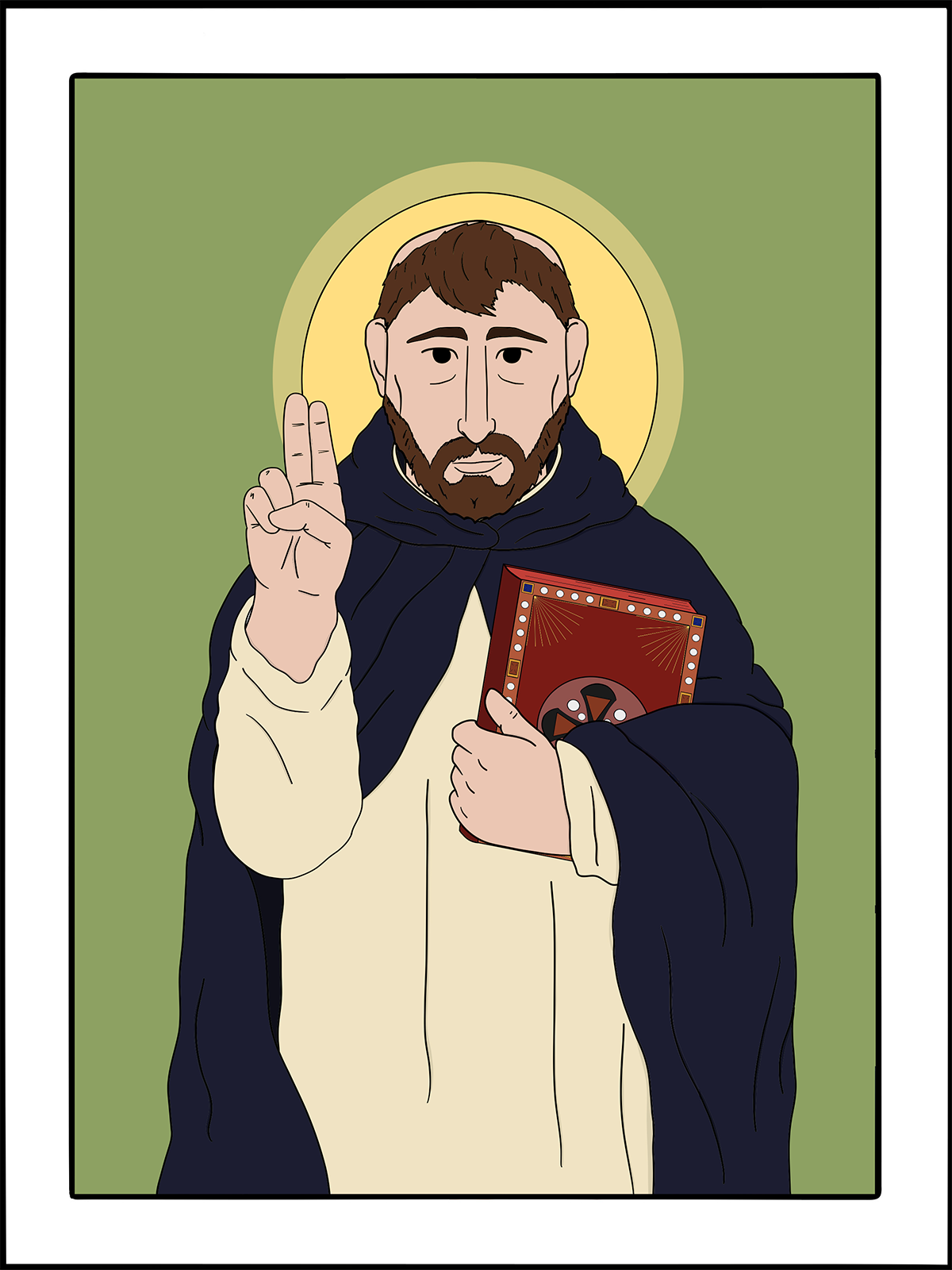
August 8
Dominic
Priest and Friar, 1221
art by Rev. Kirsten Kohr of Geneva, Ohio Almighty God, grant unto your people a hunger for your Word and an urgent longing to share your Gospel; that, like your servant Dominic, we might labor to bring the whole world to the knowledge and love of you as you are revealed in your Son Jesus Christ; who lives and reigns with you and the Holy Spirit, one God, for ever and ever. Amen.
Dominic was the founder of the Order of Preachers, commonly known as Dominicans. He was born around 1170 in Spain. Influenced by the contemporary search for a life of apostolic poverty, Dominic is reputed to have sold all his possessions to help the poor during a famine in 1191. Ordained in 1196, he soon became a canon and then sub-prior of the Cathedral of Osma, where a rule of strict discipline was established among the canons.
In 1203 he began a number of preaching tours in Languedoc, a region in Southern France, against the Cathars, who believed in a dualist version of Christianity that denigrated the physical world and the human body. In 1214, his plan to found a special preaching order for the conversion of the Cathars began to take shape, and in the following year, he took his followers to Toulouse. At the Fourth Lateran Council in October of 1215, Dominic sought confirmation of his order from Pope Innocent III. This was granted by Innocent’s successor, Honorius III, in 1216 and 1217.
Over the next few years, Dominic traveled extensively, establishing friaries, organizing the order, and preaching, until his death on August 6, 1221. He is remembered as a man of austere poverty and heroic sanctity, always zealous to win souls by the preaching of pure doctrine.
The Dominican Constitutions, first formulated in 1216 and revised and codified by the Master-General of the Order, Raymond of Peñafort, in 1241, place a strong emphasis on learning, preaching, and teaching, and, partly through the influence of Francis of Assisi, on absolute poverty. The continuing Dominican apostolate embraces intellectual work and the arts of preaching, their major houses usually situated in university centers. Their Constitutions express the priority in this way: “In the cells, moreover, they can write, read, pray, sleep, and even stay awake at night, if they desire, on account of study.”
Excerpted directly from “Lesser Feasts and Fasts 2022,” p. 348-349.

